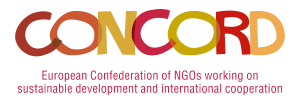Brussels, 25 November 2020 – 2020 should have been a celebratory year for accelerating gender equality globally. It marks the 25th anniversary of the Beijing Declaration and Platform for Action, the most ambitious framework for advancing women’s rights. It is also the year the EU is releasing the third generation of its Gender Action Plan. But, instead of celebrations, COVID-19 is dramatically reversing the progress made over recent decades.
The adoption of a third Gender Action Plan (GAP III) demonstrates the European Union’s continued commitment to achieving gender equality. Clearly, the will to support partner countries in achieving gender equality is there, at least in most Member States and the EU institutions. And a good plan can pave the way, but, by itself, it is not enough.
There are many aspects of the GAP III which CONCORD, the European Confederation for relief and development NGOs, welcomes. For example, the new action plan suggests important steps to tackle the root causes of gender inequalities. As Marie Tempesta, Advocacy Advisor at the International Planned Parenthood Federation European Network said, “GAP III challenges the power dynamics that generate gender-based discrimination. And it tries to address how gender discrimination can be magnified by other forms of discrimination. But it’s unclear how this more inclusive understanding of gender will work in practice so as to reach women in all their diversity.”
GAP III challenges the power dynamics that generate gender-based discrimination. And it tries to address how gender discrimination can be magnified by other forms of discrimination. But it’s unclear how this more inclusive understanding of gender will work in practice so as to reach women in all their diversity.
Such an inclusive recognition of women and girls must be reinforced by adequate funding: this is the main way to actually reach them. GAP III reiterates the EU’s commitment to ensure that 85% of new EU programmes in partner countries will have gender equality as either a main or partial focus. However, that misses the point entirely. It is not the number of programmes which counts, but the funding dedicated to them. And currently, there is no link between the 85% target and the funding needs.
Secondly, a sizeable proportion of that funding should go to local women’s and girls’ rights organisations. However, as Inge Brees, Senior EU Advocacy Officer at CARE remarked: “There are currently no measures to ensure funding goes to such local organisations in the programming process”. On the other hand, CONCORD welcomes the recognition of civil society organisations’ role in GAP III. Local civil society organisations working on gender equality are crucial in co-creating context-specific solutions that address the root causes of gender inequalities. They also have the necessary experience and reach to work with marginalised communities. It is for that reason that it is important to involve them in all stages of the programming process.
There are currently no measures to ensure funding goes to such local organisations in the programming process.
The architects of the 2030 Agenda tried to draw up a framework which reflected the complexities and interlinkages of our global system. It nonetheless took the COVID-19 pandemic to demonstrate them more clearly. Decision-makers now need to recognise that a gender-equal world cannot be achieved by development cooperation alone. As Isabelle Brachet, Senior EU Advocacy Advisor at ActionAid International said, “the EU needs to take action to make sure that every policy and every action supports the aims of the GAP III. It’s just not tenable to have important policies like trade, tax or debt undermining gender equality”.
The EU needs to take action to make sure that every policy and every action supports the aims of the GAP III. It’s just not tenable to have important policies like trade, tax or debt undermining gender equality.
Without pairing political will with bold action to put gender equality front and centre of every initiative, structural barriers to gender equality will persist. And attempts to build back better in the COVID-19 recovery period will fail. If the Gender Action Plan III is to achieve its goal of transforming the lives of women and girls in all their diversity, the EU will have to follow through on its good intentions by aligning policy, funding and participatory processes.
For media inquiries, please contact:
Katarzyna Krok
Communication Officer | CONCORD
katarzyna.krok@concordeurope.org
Alexandra Rosen
Policy & Advocacy Coordinator | CONCORD
alexandra.rosen@concordeurope.org
